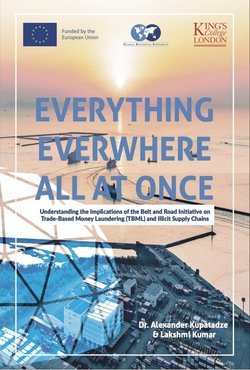Everything Everywhere All At Once: Understanding the Implications of the Belt and Road Initiative on TBML and Illicit Supply Chains
By Alexander Kupatadze and Lakshmi Kumar
China’s Belt and Road Initiative (BRI), sometimes referred to as ‘Globalisation 2.0,’ is a global infrastructure development strategy that aims to fundamentally reshape global trade. The BRI is a key element of the Chinese President Xi Jinping’s ‘Major Country Diplomacy,’ which intends to expand China’s leadership role in global affairs. The BRI covers 149 countries and promises increased connectivity between China and the rest of the world through infrastructure projects, policy coordination, unimpeded trade, financial integration, and people-to-people bonds. Since its inception in 2013, China has already spent an estimated US$200 billion on renewing and modernising infrastructure along the sea and overland trade routes that make up the BRI. However, it is not clear whether the BRI will actually deliver on its promise of achieving deeply transformative economic growth. Much like the impact of the internet when global online connectivity transformed criminality (global cybercrime now generates over US$1.5 trillion per year), the rapid development of infrastructural linkages and logistical corridors has the potential to radically alter the illegal trade landscape. As with the inception of the internet, the BRI has not been designed and implemented with the aversion of crime in mind, which may lead to negative developments including the expansion of illicit supply chains. To understand the consequences of BRI connectivity, we convened a two-day-long workshop at King’s College London with the financial support of the European Anti-Fraud Office (OLAF), attended by leading experts on..…
-
illicit trade as well as representatives of both consumer industries (namely tobacco, pharmaceuticals, and fertilisers) and international organisations. This paper is an outcome of the discussion(s) that took place at that same workshop as well as the research of the two co-authors on the BRI and its implications for illicit trade.
Washington, DC: Global Financial Integrity, 2022. 38p.



